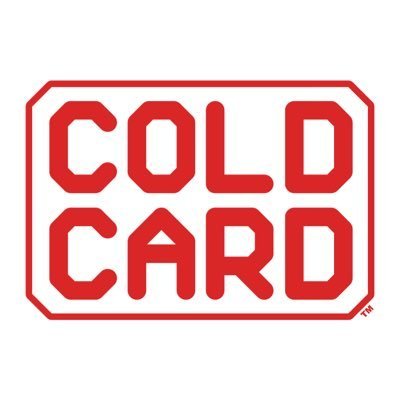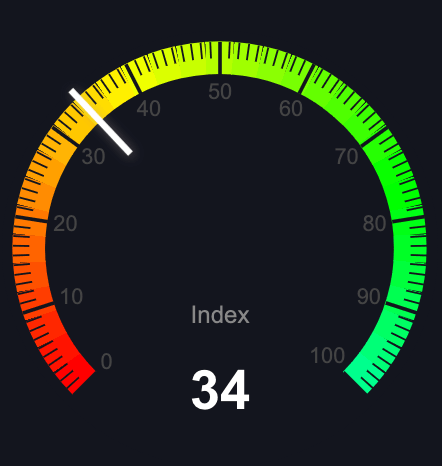Hardware Wallets
Bitcoin hardware wallets, some Bitcoin-only.

Trezor Safe 5
Hardware wallets, including a Bitcoin-only version

Ledger
4 different types of hardware wallets, some advanced and some basic and budget options.

Blockstream Jade
Affordable Bitcoin-only hardware wallet (10% off with code BITBO)

BitBox
Hardware wallet to store, protect, and transact with ease

Coldcard
Bitcoin-only hardware wallets for security focused users
Key Takeaways
- The Trezor Safe 5 is best overall hardware wallet, due to its track record since 2013.
- The Blockstream Jade is best for those on a budget, at just $79.
- Coldcard is best for advanced users and those who want Bitcoin-only.
WARNING: Never buy a hardware wallet from eBay. Always verify that the manufacturer is selling the product directly, especially if buying on Amazon. Some scammers sell fake hardware wallets that could steal your bitcoin.
Best For:
| Hardware Wallet | Best For: |
|---|---|
| Trezor Safe 5 | Best overall |
| Ledger Nano X | If you need coins other than Bitcoin |
| Coldcard Mk4 | Best for advanced users & Bitcoin only |
| BitBox02 | Best for hobbyists & Bitcoin only |
| Blockstream Jade | Best for budget |
Compare Hardware Wallets
We built this simple widget to allow you to compare the features of two hardware wallets side by side.
| Feature | Wallet 1 | Wallet 2 |
|---|---|---|
| Price | ||
| Best For | ||
| Year Founded | ||
| Mobile App | ||
| Amazon Score |
Price Comparison
This table compares the price of each hardware wallet according to the manufacturer's website.
| Hardware Wallet | Price (USD) |
|---|---|
| Trezor Safe 5 | $169 |
| Ledger Nano X | $149 |
| Coldcard Mk4 | $167.94 |
| BitBox02 | $157 |
| Blockstream Jade | $79 |
Amazon Review Score Comparison
This table compares the Amazon review score of each hardware wallet.
| Hardware Wallet | Amazon Review Score |
|---|---|
| Trezor Safe 5 | 4.5 |
| Ledger Nano X | 4.4 |
| Coldcard Mk4 | Not sold on Amazon |
| BitBox02 | Not sold on Amazon |
| Blockstream Jade | 4.5 |
Hardware Wallets Leaks & Attacks
There have been no recorded cases of customers losing funds due to hardware wallet leaks or attacks with software vulnerabilities.
However, some physical attacks have been reported on hardware wallets. For example, users have been mugged or threatened with physical harm to be forced into unlocking their hardware wallet.
There have also been some user info leaks from many of the hardware wallet manufacturers.
Recent Hardware Wallet Security Incidents
Trezor (January 2024)
A breach of Trezor's support ticketing portal exposed names and email addresses of 66,000 customers who contacted support since December 2021. No funds were compromised, but 41 users received phishing emails requesting their recovery seeds. Source
Ledger (December 2023)
A hacker accessed a former employee's NPMJS account and uploaded malicious code affecting multiple DApps like SushiSwap and Balancer. The issue was fixed within 40 minutes. No Ledger device funds were compromised. Source
BitBox (July 2022)
A breach of BitBox's email marketing platform ActiveCampaign exposed customer names, email addresses and IP addresses. No funds or device security were affected. BitBox implemented stricter data protection measures afterwards. Source
Blockstream (October 2023)
Customer data including shipping addresses and phone numbers were exposed through a third-party shipping provider breach. No private keys or wallet addresses were compromised, but customers received phishing emails requesting seed phrases. Source
Backup and Recovery
Hardware wallets provide backup and recovery through seed phrases - a series of 12-24 random words that allow you to restore your wallet if lost or damaged. It's critical to securely back up these seed phrases.
What is Cold Storage?
Cold storage refers to keeping cryptocurrency offline and disconnected from the internet. Hardware wallets are a form of cold storage that protect private keys from online threats while allowing secure transactions when needed.
Extra Security Features
Air Gaps
Some hardware wallets use "air gaps" - complete physical isolation from networks - for enhanced security. Devices like the Coldcard are permanently air-gapped, while others can operate in air-gapped mode.
Anti-Tamper Protection
Hardware wallets use anti-tamper measures like security seals and holographic stickers to detect physical tampering. All of the wallets we've reviewed have some form of tamper protection on the box when you order them. If tampered with, you'll need to request a replacement from the manufacturer.
PIN Codes
PIN codes provide an essential security layer, requiring entry before any transaction. Most devices limit incorrect PIN attempts and will reset after too many failures, requiring seed phrase recovery.
Steel Wallets
Steel wallets provide virtually indestructible backup for seed phrases, protecting against fire, water, corrosion and physical damage.
Popular Options:
- Billfodl - Premium steel wallet operating since 2017, offering 125% money-back guarantee
- Cryptotag - Produces three different titanium wallet models
- Trezor Keep - Official Trezor steel backup solution, compatible with 12-word seeds (two units needed for 24 words)
Steel wallets are considered essential for proper seed phrase backup, with prices ranging from $30-120 depending on materials and features.
Wallets We Left Out
We've left out some hardware wallets from our list that we aren't familiar with.
- BC Vault
- Tangem
- Ellipal Titan
We'll likely be adding Block's Bitkey soon as well as Foundation's Passport, but we need to explore both of these wallets more first.
FAQ
What happens if your hardware wallet breaks?
If your hardware wallet breaks, you can easily restore your funds by using your seed phrase (backup) to recover your wallet on a new device.
The seed phrase can be imported into any hardware wallet that supports BIP39 seed phrases, or into software wallets like Electrum. This is why it's critical to properly back up and secure your seed phrase - it's the only way to recover your funds if your device is lost, stolen, or damaged.
What is the cheapest hardware wallet?
The Blockstream Jade is currently the most affordable hardware wallet at $79. Despite its lower price point, it still provides strong security features and is made by Blockstream, a well-known Bitcoin company.
How do I safely buy a hardware wallet?
The safest way to buy a hardware wallet is directly from the manufacturer's official website. This ensures you receive a genuine device that hasn't been tampered with.
While Amazon is a popular option, you need to be extremely careful when purchasing hardware wallets there. Only buy if the product is sold and shipped directly by the manufacturer (like "Sold by Ledger" or "Sold by Trezor"). Avoid third-party sellers, as there have been cases of scammers selling compromised or fake hardware wallets that could steal your bitcoin.
What is the difference between a hardware wallet (cold storage) and a hot wallet?
A hardware wallet (cold storage) stores your private keys offline on a dedicated physical device, providing maximum security since the keys are never exposed to an internet-connected computer. Hot wallets, like browser extensions, mobile apps, or desktop wallets, run on internet-connected devices, making them more convenient but less secure.
While hot wallets are suitable for small amounts and frequent transactions, hardware wallets are recommended for storing larger amounts of bitcoin securely.
What is Shamir's Secret Sharing and why is it important?
Shamir's Secret Sharing is an advanced security feature offered by some hardware wallets that splits your recovery seed phrase into multiple shares. Instead of having a single seed phrase, you can split it into several parts (like 3-of-5 or 2-of-3), requiring a minimum number of shares to restore your wallet.
This provides better security and redundancy - even if one share is lost or compromised, your funds remain safe as long as you have the minimum required number of shares. It's particularly useful for inheritance planning or protecting against theft of your seed phrase.
What security certifications should I look for in a hardware wallet?
The EAL (Evaluation Assurance Level) certification, particularly EAL7, is one of the highest security certifications a hardware wallet can achieve. It certifies that the device's secure element chip has undergone rigorous security testing and meets strict international standards.
Other important security features include true random number generators (TRNG) for generating secure private keys, and tamper-resistant packaging. Some wallets also offer additional security through features like NFC-enabled cards or microSD card backup options.
Terms to Understand
- Seed Phrase: A list of 12-24 words that serves as a backup of your private keys
- Private Keys: The secret codes that give you control over your bitcoin
- PIN Code: A security code required to access your hardware wallet
- Secure Element: A specialized chip that keeps private keys isolated and secure
- BIP39: The standard format for seed phrases used by most hardware wallets
- Air-gapped: A device that never connects to the internet for maximum security
- Recovery Mode: The process of restoring a wallet using your seed phrase
- Firmware: The software that runs on your hardware wallet device
